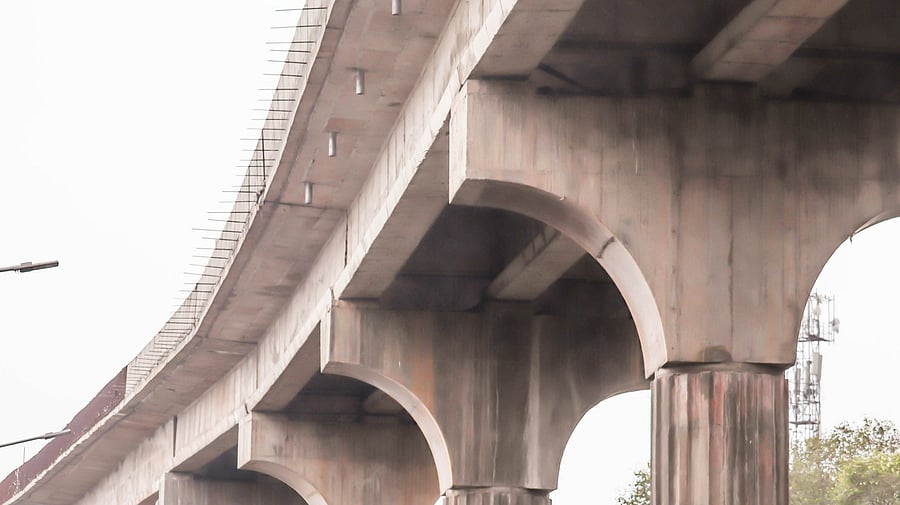
Representative image
Credit: iStock Photo
Bengaluru: Experts analysed the "shortcomings" of the current urban planning practices in Bengaluru during a discussion on 'Misplaced priorities of BBMP’s projects' organised by Citizens Voluntary Initiative for the City (CIVIC) on Friday.
The discussion was centred around the proposed tunnel road and double-decker projects.
Ashish Verma, a professor of transportation systems engineering at the Indian Institute of Science (IISc), presented a data-driven analysis of the city’s transportation systems.
He assessed multiple scenarios for the city’s transportation system and emphasised the importance of integrated planning between metro and suburban rail networks to tackle the increasing ridership. However, he warned of congestion risks without proper double-track implementation.
Verma critiqued proposals like double-decker (road-cum-metro) flyovers and tunnel roads, stating that they reduce public transport ridership and aggravate environmental challenges.
He emphasised that many outer areas of the Bengaluru Metropolitan Region (BMR) are left out of MRTS coverage, that can lead to congestion in these regions, and that the current priority corridors do not align with the ridership demand. He called for avoiding redundant infrastructure and adopting sustainable policies to enhance urban mobility.
The findings highlight the significant benefits of a well-integrated MRTS network, projected to achieve an 80 per cent sustainable modal share by 2041 while alleviating congestion and enhancing urban connectivity.
However, the analysis reveals that double-decker roads and tunnel corridors, despite offering localised travel time reductions, encourage private vehicle usage, reduce public transit ridership, and exacerbate environmental and social disparities.
Recommendations emphasise the need for increased suburban rail capacity, comprehensive MRTS coverage, and seamless modal integration to foster an equitable, scalable, and resilient urban mobility framework.
The study provides valuable insights for policymakers to align infrastructure investments with sustainable and inclusive mobility goals.
D T Devar from the Bangalore Development Trust, focused on the procedural gaps in approving major infrastructure projects, particularly the proposed tunnel road.
He criticised the absence of elected corporators since 2021, leading to ad hoc decision making. He highlighted the lack of alignment in statutory frameworks like the Comprehensive Mobility Plan (CMP) and the absence of environmental impact assessments, calling for transparency and adherence to the process.
Rajkumar Dugar, from Citizens for Citizens, underscored the technical flaws in the tunnel road project. Questioning the necessity of the project, he cited several challenges during construction and usage. He criticised the project’s “no land acquisition” claim, saying the entry and exit ramps require significant land.
He also highlighted potential challenges like waterlogging, disruption of services, unexpected cost escalations, risks of accidents, gas emissions, chemical contaminants, and increased congestion at access points.
Advocating for public transport, Dugar proposed enhancing metro and suburban rail systems, improving road infrastructure, and prioritising pedestrian-friendly policies over costly and redundant road projects.
Sandeep Anirudhan, from Citizens’ Agenda for Bengaluru, said that the city’s governance fails due to the state government’s neglect of constitutional mandates, unplanned development and avoidance of public consultation. He said that prioritising vested interests over democratic planning has led to urban chaos.
Kathyayini Chamaraj, from CIVIC-Bangalore, pointed out the shortfalls in Karnataka’s budgets for Early Childhood Care & Education (ECCE), health and education. She stressed that until these fundamental rights, basic to human development, are not met, money should not be spent for “such fancy and vanity projects”.
Dr A Ravindra, former chief secretary to the government of Karnataka, highlighted that any project formulation should include public consultation by the Government, and suggested advocacy with the government to stop the tunnel road project.